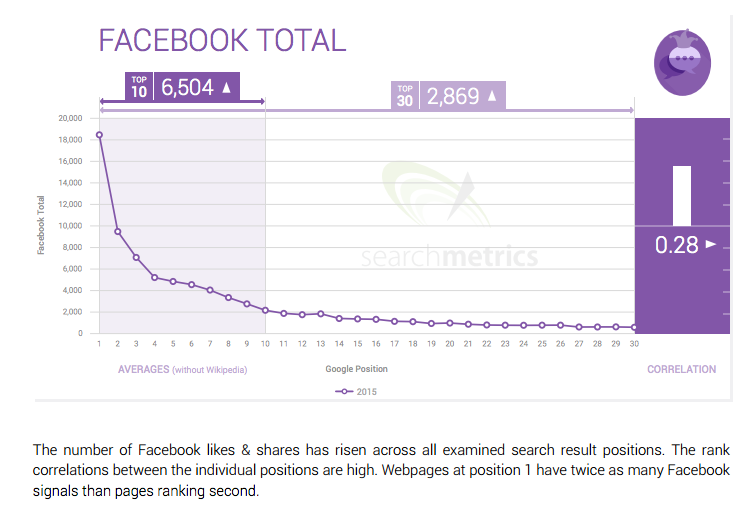|
by Mary C Long Searchmetrics just released a report that calls everything you thought you knew about search ranking factors for Google into question. Maybe not everything, but enough. Particularly around social signals.
Their new report, Search Ranking Factors and Rank Correlations, sets out to clear up any confusion you may have around “how the deck is stacked.” And coming in at just shy of 80 pages, it’s chock full of info you’ll want to set aside some time to read. That is, if you want to know:
Some of their tips are common sense, around internal link structure flowing in a way that directs visitors through your site, and best practices around using images, video and font sizes. And then there are a number of fantastic tidbits – too many to list, really (and it wouldn’t be fair to the report creators to do so regardless), but here are a couple from their User Experience (UX) section to keep in mind: "When optimizing your site, consider the bounce rate with respect to time on site. Pages that create bad user signals should be either completely reworked or deleted all together. User signals are essential for your content and rankings. The reaction of users offers search engines direct feedback about user satisfaction with your content." And speaking of sections, there are six beyond UX portion, focusing on technical, content, social signals, and backlinks. And two special sections covering the role and importance of Wikipedia &Facebook and mobile ranking factors. "Technical factors continue to be an important, if not the most important prerequisite for achieving good rankings with good content – and this is not likely to change. … The question remains open as to exactly how social media signals such as likes, tweets and +1s boost rankings. Google maintains that it does not directly use these signals as a ranking factor, but [their] data shows that a positive correlation between amount of social signals and rankings.” What does that mean? More specifically, content has become a bit longer, and “less demanding to read,” according to the report, and the “importance of keywords in internal and external links has declined.” And the outlook for backlinks is worse, the report notes: "Links will continue to lose relevance in the age of semantic contexts and machine learning with a user focus. For search engines it is a question of ranking the best and most relevant content." Their relevance is still high, make no mistake – but it’s decreasing. So what better way to determine what’s relevant to users than to focus on social signals? Google apparently agrees. As you’ve likely suspected for a while (or fervently hoped!), social signals are beginning to figure more prominently than traditional ranking criteria. So maybe all the time spent “playing” on social media hasn’t been wasted.
And if you didn’t expect this to happen, you really should have. Keran Smith, chief strategy officer & co-founder of Lyfe Marketing, notes:
"A company’s social media presence is a great indicator of how active they are online. Since Google loves fresh quality content, it makes sense they will begin to take social media activity into account to enhance user’s search experience. Google is already showing streams of Tweets and G+ posts in the SERP. If you disagree social signals are relevant now, you can surely predict it is coming." The real question then isn’t whether or not Google really is weighing social signals more than you anticipated – it’s how do you plan to catch up, if you’re not effectively capturing your audience on social? This post originally appeared on AdWeek Social Times IMAGE CREDIT: DRAKELELANE |
Categories
All
Archives
November 2023
|
|
Locations:
New Orleans, LA Nashville, TN |
|
Digital Media Ghost @2020
|



 RSS Feed
RSS Feed
